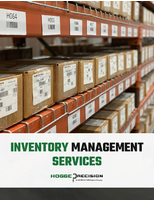Proposed Concrete Standard characterizes drying behavior.
Press Release Summary:
Developed by Subcommittee C09.66 on Concrete’s Resistance to Fluid Penetration, part of Committee C09 on Concrete and Concrete Aggregates, ASTM WK37029 will be used by ready-mix concrete producers to characterize drying behavior of new and existing concrete mixture proportions. Purpose of standard is to provide information on mass loss versus time (drying) behavior of initially saturated concrete specimen exposed to 1-dimensional drying in controlled temperature and relative humidity environment.
Original Press Release:
Proposed ASTM Concrete Standard Will Characterize Drying Behavior of New and Existing Mixture Proportions
W. CONSHOHOCKEN, Pa., —A proposed new ASTM International test method will be used by ready-mix concrete producers to characterize the drying behavior of new and existing concrete mixture proportions. ASTM WK37029, Test Method for Measurement of Mass Loss Versus Time for One-Dimensional Drying of Saturated Concretes, is being developed by Subcommittee C09.66 on Concrete’s Resistance to Fluid Penetration, part of ASTM International Committee C09 on Concrete and Concrete Aggregates.
“This proposed standard is being developed to support the modeling of concrete service life,” says Dale Bentz, chemical engineer for the Materials and Structural Systems Division in the Engineering Laboratory at the National Institute for Standards and Technology.
Bentz, the chairman of the task group developing ASTM WK37029, notes that, in many applications, concrete is exposed to wetting and drying conditions such that the concrete is partially saturated. The purpose of the proposed standard is to provide information on the mass loss versus time (drying) behavior of an initially saturated concrete specimen exposed to one-dimensional drying in a controlled temperature and relative humidity environment.
“The drying information provided by the test in ASTM WK37029 can be used to directly assess the drying propensity of a given concrete mixture,” says Bentz. “This information could be valuable for industrial flooring applications where quick drying is often desirable.” Bentz also notes that the data can be analyzed to provide estimates of vapor diffusivity and liquid permeability for the concrete mixture being tested.
Ready-mix concrete producers, as well as testing laboratories and concrete consultants, will be the primary users of ASTM WK37029.
Participation in the standards developing activities of C09.66 is welcome. The subcommittee would be particularly interested in working with laboratories that would be willing to implement the test method contained in ASTM WK37029, as well as anyone else who has suggestions for modifications of the current version of the proposed standard.
ASTM International welcomes participation in the development of its standards. For more information on becoming an ASTM member, visit www.astm.org/JOIN.
ASTM International is one of the largest international standards development and delivery systems in the world. ASTM International meets the World Trade Organization (WTO) principles for the development of international standards: coherence, consensus, development dimension, effectiveness, impartiality, openness, relevance and transparency. ASTM standards are accepted and used in research and development, product testing, quality systems and commercial transactions.
For more news in this sector, visit www.astm.org/sn-construction or follow us on Twitter @ASTMBuildings.
ASTM Committee C09 Next Meeting: Dec. 8-11, 2013, December Committee Week, Jacksonville, Fla.
Technical Contact: Dale P. Bentz, National Institute of Standards and Technology, Gaithersburg, Md., Phone: 301-975-5865; dale.bentz@nist.gov
ASTM Staff Contact: Scott Orthey, Phone: 610-832-9730; sorthey@astm.org
ASTM PR Contact: Barbara Schindler, Phone: 610-832-9603; bschindl@astm.org




